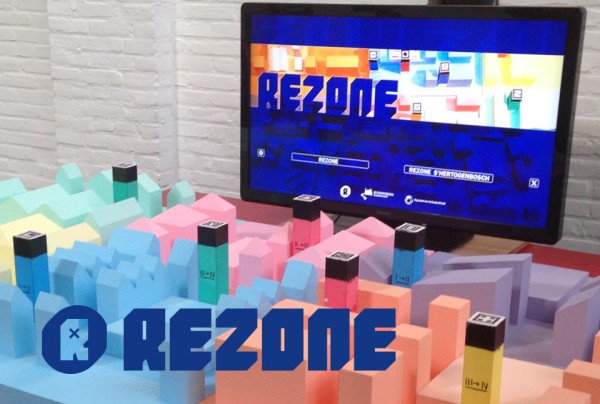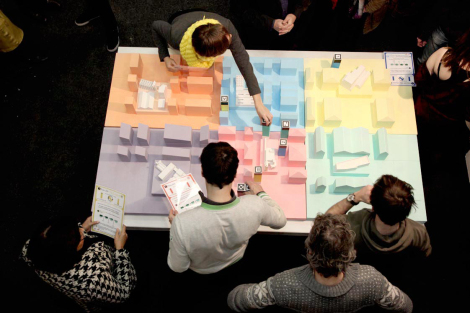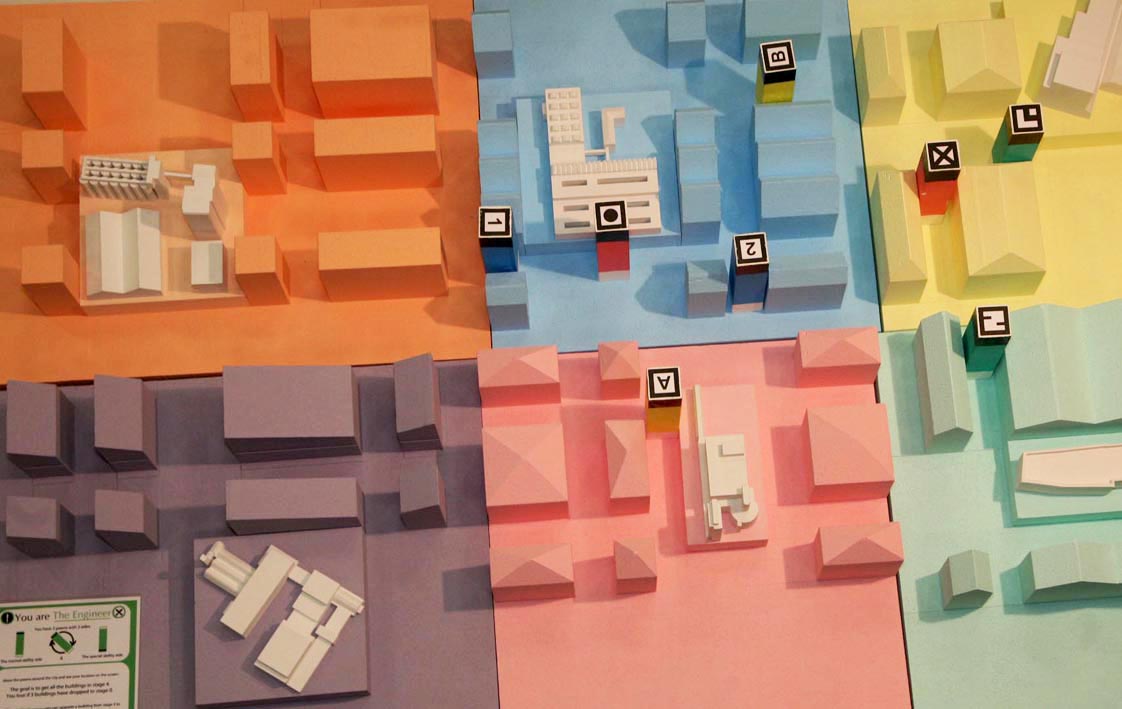Games for Cities
Rezone the Game (2012)
Den Bosch [NL]
Developed by:
Digitally integrated analog game for applied urban management, focused on stakeholder role-play addressing specifically the problem of urban vacancy.

Vacant buildings pose a complex problem, one that is plaguing shrinking cities in states of decay. With the problem intensifying due to economic crises, solutions from traditional channels prove difficult or inadequate. In response, the Netherlands-based Bosch Architecture Initiative and Digital Workshop teamed up to create a less conventional, more playful solution: Rezone the Game. The objective is to save cities from the destructive effects of abandoned urban property.
Gameplay combines a physical gaming table with a webcam and computer display screen. The table is equipped with customizable blocks representing the Spoorzone neighbourhood in Den Bosch, an area coping with high vacancy rates. Each block is a single building and the computer display integrates with the physical game pieces to show the occupancy status of each building on a scale of 0 (vacant) to 4 (in full use).
In play, each player has a role: either mayor, building owner, engineer or resident. With each role comes certain possible actions which players can use to fight vacancy: for example, the engineer can upgrade a decaying building, and the resident can choose to move in (or not!). Effort is made to instil real-world hierarchy. For instance, an engineer must first receive permission from a building’s owner and the mayor before taking action with it, after which they must speak with the resident about actually using the building.
While in theory anyone can play, Rezone is not designed for everybody. It is an applied urban management game designed to address specific areas of development and the particular stakeholders who have a vested interest in the neighborhood. Like most games, Rezone radically simplifies a complex issue. It is effective because it does not dictate solutions. Instead, it serves as a process tool that structures a collaborative environment for players to co-create actions themselves. In turn, coming up with solutions gives stakeholders a stronger sense of active ownership.

